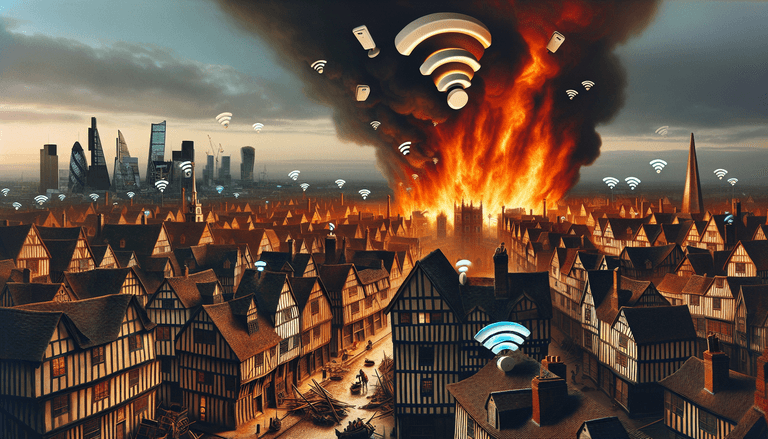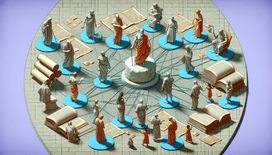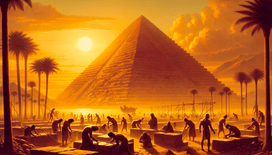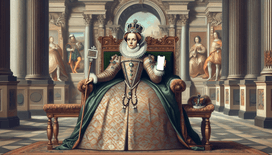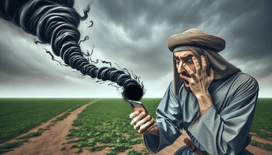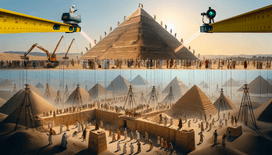Ah, the Great Fire of London. A crispy calamity that devoured much of the city in September 1666. Picture this quaint 17th-century metropolis with its charming, albeit flammable, wooden houses. As Charles II played twiddlywinks with the treasury, a mere flicker turned London into a sizzling bonfire. But what if, dear readers, Londoners had Wi-Fi during this pyro-disaster? Hold tight to your digital tinder, because Timewarp Terry is about to flame-grill that hypothetical marshmallow!
London Calling... Please Wait, Buffering
Before our musings quite literally go up in smoke, let’s set the scene. Imagine Thomas Farriner, proprietor of the infamous Pudding Lane bakery, hastily snapping a fire selfie as buttery flames lick at his pantry. As smoke-clogged eyeballs squint at his post, our dilemma arises: How fast would the city government act if they were notified by Instagram alarm bells?
Enter Samuel Pepys, diligent diarist and part-time drama queen. Equipped with a snazzy smartphone, he’d be both live-streaming and penning fervent tweets. "Flames Scale St.Paul's! 🔥 #SaveOurSpires," would trend faster than bread getting scorched in a stone oven. Oh, what a spectacle for BlewitChat (London's 1666 version of Twitter).
Hotspots and Hiccups
Ground rules: We’ve transported our 1666 inhabitants to a world with seamless Wi-Fi but without the modern infrastructure to back it up. A minor speed bump in the cobblestone road. 🤨 Imagine architects screaming "This is not what we meant by wired connections!" as high-speed internet beams down upon a city still fuelled by horse power and non-mains drainage systems.
Would the citizens in their rush to escape log onto Smoked-u-Maps to plot their heroic exit routes? Or perhaps search "how to extinguish fire 101" using AskBartholomew.com, assuming their web page doesn't load at the speed of a snail napping in molasses.
The Digital Battles
You know those pesky pop-ups? Well, Jane Freeman’s post-colonial candlemaking shop would have to fend off "Great Extinguisher Deals" courtesy of ads hoping to monetise the blaze. Meanwhile, hashtags like #LondonsBurningHollowWashout would spring up, drawing the ominous attention of curious onlookers more intrigued by virtual infernos than by watching their actual abodes ignite.
Using WhatsAppuckers (exclusive to farmyard animals), doting Londoners would try and rescue their beloved chickens. "Can someone moo-ve my cow to safety?", they’d message. In reality, GPS installed in hooves wouldn’t direct them any better than a horse-sense compass.
Virtual Aid Brigade
The golden question remains: Would the King's response be swift and effective courtesy of this new digital ally? Imagine a virtual command centre, perhaps an early version of MS Brainstorm. Lord Mayor Thomas Bloodworth could have opened virtual breakout rooms, sort of noble Zoom lounges, strategizing rescue operations from comfy council stands. Alas, he fiddled whilst London burned, even in this digitised fantasy.
Meanwhile, citizens might hastily join Discord-19, sharing hot tips, smoke signals, and bellowing orders through pixelated panic. As the servers smoked under the pressure of circa-1666 hardware, perhaps the bandwidth would have buckled under the weight of fiery meme exchanges. The race between data transfer and a real blaze could give "hotspot" an alarmingly literal meaning.
As the fire eventually dampens, merry citizens gather ‘round ye olde devices to view "Fire-alytics": detailed analytics on speed of blaze versus like-to-real-estate loss ratios. A retrospective analysis peppered with GIFs and jingle-worthy jingles about "Great Balls of Fire!", imagine surprises delivered with the smoky talents of virtual pyromaniacs, evaluating from their chimney-viewing platforms.
Conclusion
In this orbit of wild imagination, Wi-Fi does as much good as Dame Fortune’s roll of the dice, it rolls, just like the old city. The streets, the flames, the crackle of tinder, it’s a tale of historical heat with a digital dash. Our lessons? Firewalls aren’t just for computers, and always, always douse your oat flan before bed. Now, whippersnappers, it’s your job to ponder: how else could we transform history with our modern technological alchemy?
